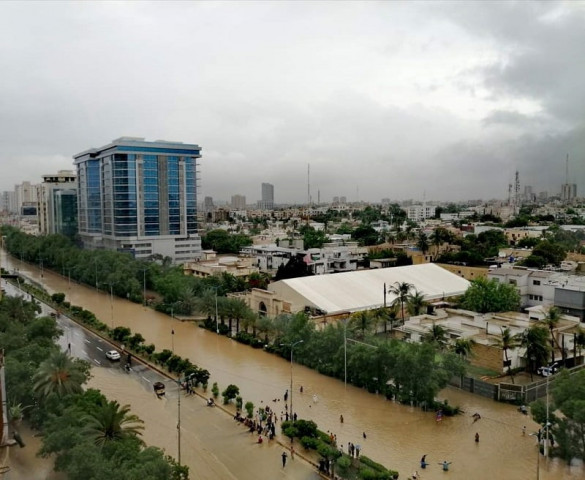‘Amend Constitution to help LG system function’
Economist says Mohenjo Daro's water, sewerage systems were better 5,000 years ago than those in Larkana today

Underlining the need to create integrated urban governance, noted economist Dr Kaiser Bengali has called for amending the Constitution by inserting a chapter to make the local government (LG) system functional.
Speaking at a webinar, 'Addressing Urban Chaos: The Case for Integrated Governance,' organised by the Pakistan Institute of Labour Education and Research (PILER) on Monday, Dr Bengali said that currently, the Constitution only featured chapters on federal and provincial governments, while LG was mentioned more as a footnote.
"The local government system has become a football between and within governments, [fighting] for control of power and patronage," he observed. "But a chapter in the Constitution, outlining the structure, powers and functions of LG, is a workable solution," he added.
"For Sindh, at least four cities' metropolitan authorities should be established with an integrated management system and should be autonomous concerning the intra-city affairs," he suggested. "Besides one for Karachi, the other three metropolitan authorities can be for Hyderabad, Shaheed Benazirabad and Sukkur."
Talking about his integrated governance model, he called for creating two parallel tracks, which may be called Civil Administration (CA) - responsible to the provincial government and administered through commissioners, deputy commissioners and others - and Local Administration (LA), which would be responsible to elected Councils.
Dr Bengali was of the view that Karachi suffered due to divided political ownership as on one hand, the city was the capital of the province, but on the other, there was a politico-ethnic divide that had hampered its development.
"The Pakistan Peoples Party (PPP) is the dominant political power in Sindh, but it has a small vote bank in Karachi, therefore, the PPP, which is in control of the provincial government, does not have the political incentives to devolve power in the city," he explained.
Expressing regret over the suffering of Karachiites in the recent rains, he added that the physical infrastructure in all the province's cities and towns was in a sorry state.
"Half of Karachi presents an 11th-century look," he reiterated. "But Larkana is the prime embarrassment. Mohenjo Daro, lying close by it, was managing its water and sewerage much better 5,000 years ago." According to him, the reason for broken civic services in Sindh's urban areas was the fragmentation of service providing bodies, constitutional deficiency and political divides, which were leading to lack of investment, planning and managerial attention. "Adding to the chaos are the cantonments and Defence Housing Authority (DHAs) in Karachi, which are supra-federal institutions that are a law unto themselves," he said.
Published in The Express Tribune, September 8th, 2020.



















COMMENTS
Comments are moderated and generally will be posted if they are on-topic and not abusive.
For more information, please see our Comments FAQ